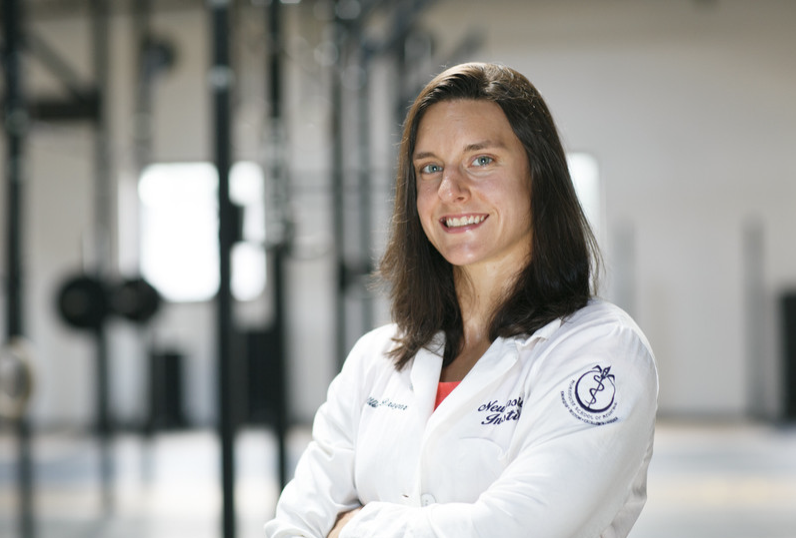Sleep for Tactical Athletes
From AZ: This is the first in a series of articles related to the initiative #Spring4Change. This initiative is aimed at reducing first responder suicide by addressing the physical health components that are related to mental health. #Spring4Change is brought to you by @4th_Shift_Fitness and @firesqfitness. To get involved, follow our accounts on Instagram. Dr. Allison Brager is a respected friend and world-renowned neuroscientist. She is currently deployed to New York City for Operation Gotham; a medical mission deep in the fight of the current COVID-19 pandemic. FireSQFitness and 4th Shift Fitness are honored to have received her blog submission for #Spring4Change prior to her activation. Thank you so much and Godspeed Captain Brager! You can find Allison on IG as @docjockzzz.
Sleep for Tactical Athletes
Proven and effective sleep recommendations for the tactical athlete are challenging. We must consider the operational tempo, especially under sustained > 24 h conditions. As sleep scientists for the military, we have leveraged groundbreaking discoveries in science & technology towards helping the tactical athlete enhance training outcomes and achieve success. The following recommendations grounded in military science are based on my current work with athletes who are the tip of the spear much like you and who must maintain superior mental and physical resilience in order to win national and international titles and perform around the countr
Always aim for > 8 hours. It is false that you can train your body to get by on less sleep. Sleep is like a bank account; the more you take out, the more effort you must put in to "pay it back." During the Gulf War, military science found that as soon as nighttime sleep < 6 h, combat effectiveness < 50%. We've replicated this study in Afghanistan: same results. Adopting early bedtimes is the easiest "hack" to achieve sufficient sleep.
Sleep Quality Is Everything. Muscle repair, muscle growth, and overnight re-wiring of brain connections to facilitate next-day learning and performance can only occur during the deepest stages of sleep: slow-wave sleep (SWS) and rapid eye movement (REM) sleep. It takes the body > 60 min post-sleep onset to even hit SWS/REM. Adopting an early bedtime and waking up close to sunrise will help you achieve your most restorative sleep and maximize your daily alertness.
Consistency is Critical. Our bodies are full of ticking clocks that latch on to incoming environmental signals. The most powerful signal is sunlight. This is why it is so advantageous for best performance to sleep soon after sunset and wake right before sunrise. Our bodies are also cued by when we eat, when we train, and even when we choose to socialize. If there is any sleep "hack" to capitalize on during the COVID-19 pandemic, it is sticking to a constant routine.
Minimize Light After Sunset. Light can help or ruin everything. Light during the day physiologically and psychologically optimizes performance. Artificial light at night especially when you have a wave of sleepiness can instantly ruin your ability to achieve deep, restorative sleep by blocking the release of melatonin: the hormone released from our pituitary gland that helps us fall asleep and stay asleep. Use blue light filters for your electronic devices, including your TV/PC, especially if you are a gamer.
Invest in a Sound Machine. I used to believe this was "gimmicky," but then some of the top biomedical research communities discovered that "pink noise" (plenty of apps for this) can actually coax your brain into the deep, restorative stages of sleep by means of uniquely altering neural connections between the auditory and sleep systems of the brain. This will also help minimize nighttime arousals.
Sleep Bank Whenever Possible. Of all the military science discoveries in the last 40 years, "sleep banking" has been the most proven strategy for physical health, brain health, and psychological health. We have done numerous studies to show that it improves mental acuity, pain tolerance, and even physical performance in cadets under well-rested conditions. We have also shown that loading up on sleep prior to sustained operations and re-loading up on sleep during continuous operations is the single best "hack" to stabilize mental acuity and job success and safety.
Dr. Allison J. Brager works for the military and has consulted with professional and collegiate teams to optimize sleep and performance. She is the recipient of two National Research Service Awards from the National Institutes of Health and a former National Academy of Sciences research fellow for research on biomarkers that promote physiological resilience in extreme environments. She has a Sc.B. from Brown University and a Ph.D. from Kent State University and is author of the popular science book, "Meathead: Unraveling the Athletic Brain."

